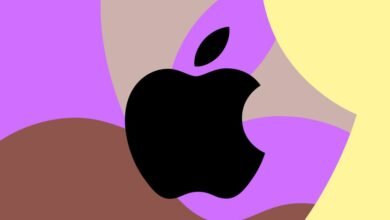Mark Cuban Would Still Dine With Donald Trump

▼ Summary
– The speaker advocates for making AI development more democratic and open to accelerate progress in the competitive field.
– There is a sense of urgency due to the rapid pace of AI advancement and concerns about China leading the race.
– Current AI is described as lacking intuition and a worldview, being effective mainly in processes but not a general threat for takeover in the near future.
– Control over algorithms is emphasized as crucial, as it can influence global dynamics, including politics and personal information.
– The competitive landscape involves risks and battles among tech leaders like Zuckerberg and Elon Musk, where control does not guarantee success.
Navigating the high-stakes world of artificial intelligence requires a delicate balance between rapid innovation and open collaboration. Billionaire investor Mark Cuban advocates for a more democratic approach to AI development, arguing that the breakneck pace of technological advancement makes secrecy counterproductive. He believes companies should openly share as much AI research as possible, since today’s cutting-edge algorithms often become obsolete within months. This relentless cycle forces tech giants like Meta to offer enormous bonuses simply to retain top engineering talent.
Cuban emphasizes that possessing exceptional personnel and visionary leadership provides sufficient competitive advantage without requiring excessive secrecy. “When you have the best talent and someone with brilliant ideas, your own version of Apple’s Jony Ive, you can afford to be more open,” he explains. “There’s no need to hold back or operate from fear.”
When questioned about whether this would accelerate AI development beyond its already dizzying speed, Cuban responds with urgency. “It has to move faster because China isn’t waiting for anyone,” he states bluntly. The investor presents a stark assessment of what’s at stake in the global AI race, suggesting American technological dominance hangs in the balance.
Despite his concerns about international competition, Cuban maintains perspective about AI’s current limitations. He describes today’s artificial intelligence as “effectively stupid” compared to human cognition, lacking intuitive understanding and immediate worldview comprehension. While AI excels at specific processes and tasks, Cuban doesn’t foresee any meaningful threat of machine takeover within the next two decades.
The conversation turns to how AI already permeates daily life, particularly through children’s use of tools like OpenAI’s Sora video generator. Cuban suggests parents can understand their children’s interests by examining their Instagram and TikTok feeds, noting that “whoever controls the algorithm controls the world.”
This observation leads to discussion about tech titans like Larry Ellison and whether controlling powerful algorithms guarantees success. Cuban remains cautiously neutral, acknowledging that control doesn’t automatically translate to victory. He predicts fierce competition among billionaires, noting that Mark Zuckerberg and Elon Musk would actively work to undermine any rival gaining algorithmic advantage.
The true battle shaping our technological future, according to Cuban, unfolds among these oligarchs competing for AI supremacy. Their decisions will determine whether AI development remains an open, collaborative endeavor or becomes another arena for corporate warfare.
(Source: Wired)





